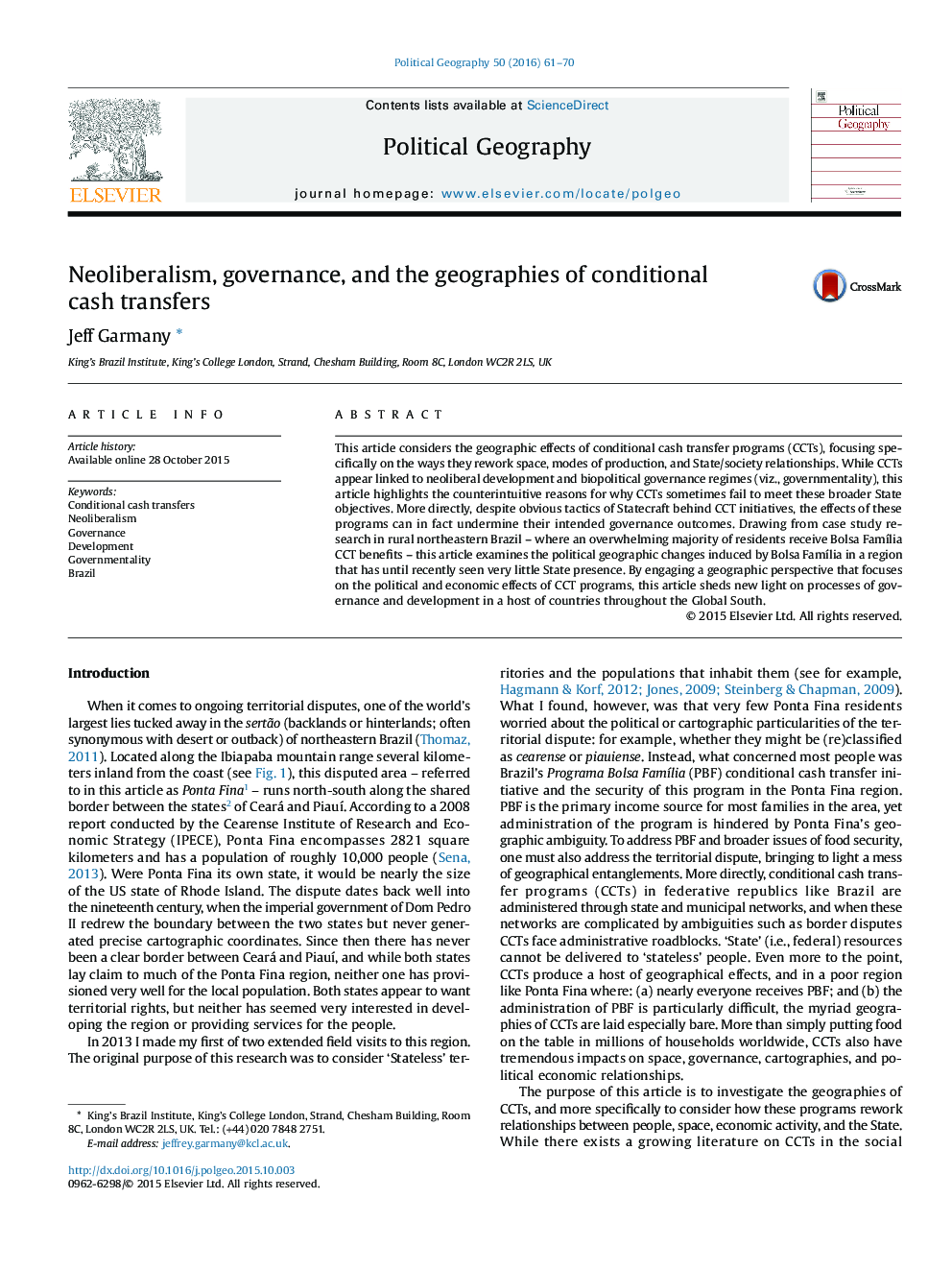| Article ID | Journal | Published Year | Pages | File Type |
|---|---|---|---|---|
| 1061873 | Political Geography | 2016 | 10 Pages |
•Article examines the geographic effects of conditional cash transfer programs.•Article offers case study from Brazil.•Article critiques existing research on conditional cash transfer programs.•Article shows ways that State objectives can be undermined.•Article suggests important differences exist between urban and rural spaces.
This article considers the geographic effects of conditional cash transfer programs (CCTs), focusing specifically on the ways they rework space, modes of production, and State/society relationships. While CCTs appear linked to neoliberal development and biopolitical governance regimes (viz., governmentality), this article highlights the counterintuitive reasons for why CCTs sometimes fail to meet these broader State objectives. More directly, despite obvious tactics of Statecraft behind CCT initiatives, the effects of these programs can in fact undermine their intended governance outcomes. Drawing from case study research in rural northeastern Brazil – where an overwhelming majority of residents receive Bolsa Família CCT benefits – this article examines the political geographic changes induced by Bolsa Família in a region that has until recently seen very little State presence. By engaging a geographic perspective that focuses on the political and economic effects of CCT programs, this article sheds new light on processes of governance and development in a host of countries throughout the Global South.
